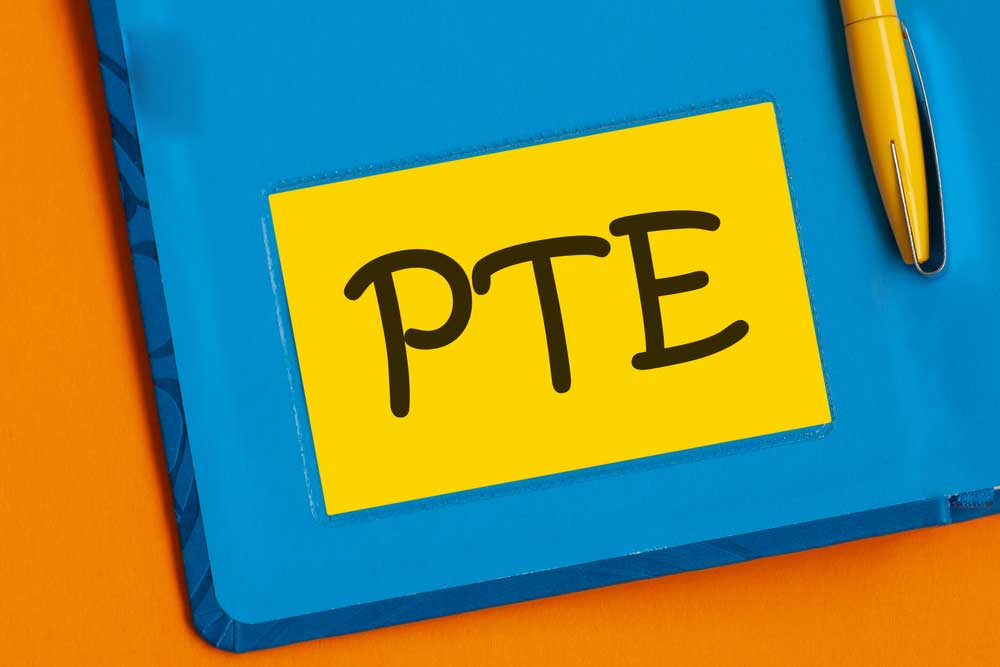Achieving excellence in the PTE test transcends showcasing English language proficiency; it demands strategic, mindful preparation. Elevate your PTE scores by adopting these seven transformative habits that can significantly impact your test performance.
1. Deliberate Reading and Listening Practices
Excel in PTE by mastering effective reading and listening skills essential not only for academic success but also for international communication. Engage in regular reading and diverse listening activities, such as consuming news, documentaries, and TED talks, to sharpen your language skills and broaden your knowledge.
2. Engage in English Conversations
Dynamic language usage thrives through conversations. Interact with friends and family in English to retain words, grasp correct verb usage, and understand sentence structure patterns, much like your native language.
3. Rediscover Letter Writing
Revisit the art of letter writing to enhance cognitive abilities. Organize your thoughts, ideas, and events systematically, refining argumentative skills, grammatical precision, and complex sentence construction – all pivotal for PTE Essays.
4. Maintain an English Journal
Nurture writing skills and expand your vocabulary by maintaining an English journal. Use an academic tone free of jargon or slang to express ideas clearly. Describe daily events or significant occurrences to bolster vocabulary, grammar, and writing fluency.
5. Join or Form a Public Speaking Group
Boost confidence and communication skills through public speaking groups, essential for the PTE Speaking section. These groups refine formal language usage, intonation, and fluency. Regular practice hones connectors, pauses, modulation, and stress patterns.
6. Engage in Dynamic Activities
Stimulate brain growth and enhance learning capabilities by participating in dynamic activities like sports, puzzles, and interactive games. These activities benefit tasks such as ‘read aloud,’ ‘repeat sentences,’ and ‘fill in the blank,’ while fostering social interaction and improving communication skills.
7. Embrace Memory-Boosting Exercises and Vocabulary Drills
Enhance brain function with memory-boosting exercises and vocabulary drills. These short yet challenging exercises stimulate brain activity, sharpen memory, and cultivate a creative, focused mindset, leading to improved performance in PTE tasks.
In conclusion, these seven habits, when integrated into your daily routine, can elevate your PTE practice online. They enhance language skills, boost confidence, and promote a mindful approach to tasks, facilitating seamless integration and effective communication as you pursue academic or immigration goals abroad. Elevate your journey to success with these small but powerful adjustments.”
1. Deliberate Reading and Listening Practices
Excel in PTE by mastering effective reading and listening skills essential not only for academic success but also for international communication. Engage in regular reading and diverse listening activities, such as consuming news, documentaries, and TED talks, to sharpen your language skills and broaden your knowledge.
2. Engage in English Conversations
Dynamic language usage thrives through conversations. Interact with friends and family in English to retain words, grasp correct verb usage, and understand sentence structure patterns, much like your native language.
3. Rediscover Letter Writing
Revisit the art of letter writing to enhance cognitive abilities. Organize your thoughts, ideas, and events systematically, refining argumentative skills, grammatical precision, and complex sentence construction – all pivotal for PTE Essays.
4. Maintain an English Journal
Nurture writing skills and expand your vocabulary by maintaining an English journal. Use an academic tone free of jargon or slang to express ideas clearly. Describe daily events or significant occurrences to bolster vocabulary, grammar, and writing fluency.
5. Join or Form a Public Speaking Group
Boost confidence and communication skills through public speaking groups, essential for the PTE Speaking section. These groups refine formal language usage, intonation, and fluency. Regular practice hones connectors, pauses, modulation, and stress patterns.
6. Engage in Dynamic Activities
Stimulate brain growth and enhance learning capabilities by participating in dynamic activities like sports, puzzles, and interactive games. These activities benefit tasks such as ‘read aloud,’ ‘repeat sentences,’ and ‘fill in the blank,’ while fostering social interaction and improving communication skills.
1. Deliberate Reading and Listening Practices
Excel in PTE by mastering effective reading and listening skills essential not only for academic success but also for international communication. Engage in regular reading and diverse listening activities, such as consuming news, documentaries, and TED talks, to sharpen your language skills and broaden your knowledge.
2. Engage in English Conversations
Dynamic language usage thrives through conversations. Interact with friends and family in English to retain words, grasp correct verb usage, and understand sentence structure patterns, much like your native language.
3. Rediscover Letter Writing
Revisit the art of letter writing to enhance cognitive abilities. Organize your thoughts, ideas, and events systematically, refining argumentative skills, grammatical precision, and complex sentence construction – all pivotal for PTE Essays.
4. Maintain an English Journal
Nurture writing skills and expand your vocabulary by maintaining an English journal. Use an academic tone free of jargon or slang to express ideas clearly. Describe daily events or significant occurrences to bolster vocabulary, grammar, and writing fluency.
5. Join or Form a Public Speaking Group
Boost confidence and communication skills through public speaking groups, essential for the PTE Speaking section. These groups refine formal language usage, intonation, and fluency. Regular practice hones connectors, pauses, modulation, and stress patterns.
6. Engage in Dynamic Activities
Stimulate brain growth and enhance learning capabilities by participating in dynamic activities like sports, puzzles, and interactive games. These activities benefit tasks such as ‘read aloud,’ ‘repeat sentences,’ and ‘fill in the blank,’ while fostering social interaction and improving communication skills.
1. Deliberate Reading and Listening Practices
Excel in PTE by mastering effective reading and listening skills essential not only for academic success but also for international communication. Engage in regular reading and diverse listening activities, such as consuming news, documentaries, and TED talks, to sharpen your language skills and broaden your knowledge.
2. Engage in English Conversations
Dynamic language usage thrives through conversations. Interact with friends and family in English to retain words, grasp correct verb usage, and understand sentence structure patterns, much like your native language.
3. Rediscover Letter Writing
Revisit the art of letter writing to enhance cognitive abilities. Organize your thoughts, ideas, and events systematically, refining argumentative skills, grammatical precision, and complex sentence construction – all pivotal for PTE Essays.
4. Maintain an English Journal
Nurture writing skills and expand your vocabulary by maintaining an English journal. Use an academic tone free of jargon or slang to express ideas clearly. Describe daily events or significant occurrences to bolster vocabulary, grammar, and writing fluency.
5. Join or Form a Public Speaking Group
Boost confidence and communication skills through public speaking groups, essential for the PTE Speaking section. These groups refine formal language usage, intonation, and fluency. Regular practice hones connectors, pauses, modulation, and stress patterns.
6. Engage in Dynamic Activities
Stimulate brain growth and enhance learning capabilities by participating in dynamic activities like sports, puzzles, and interactive games. These activities benefit tasks such as ‘read aloud,’ ‘repeat sentences,’ and ‘fill in the blank,’ while fostering social interaction and improving communication skills.





